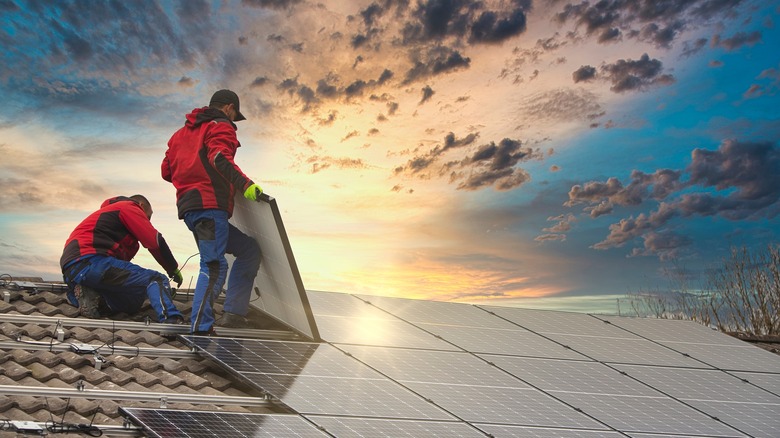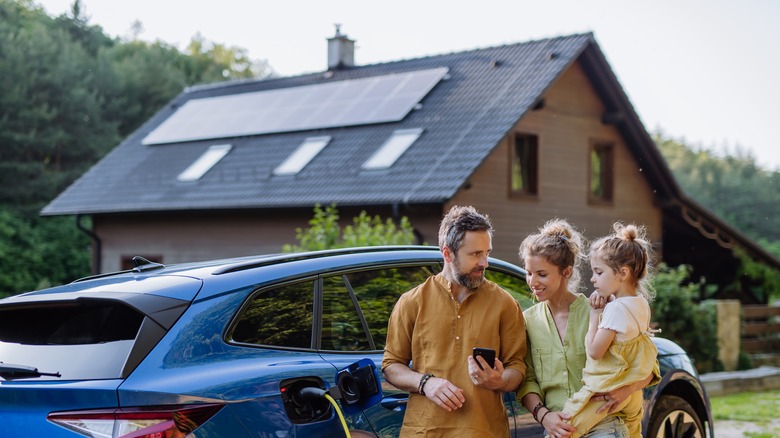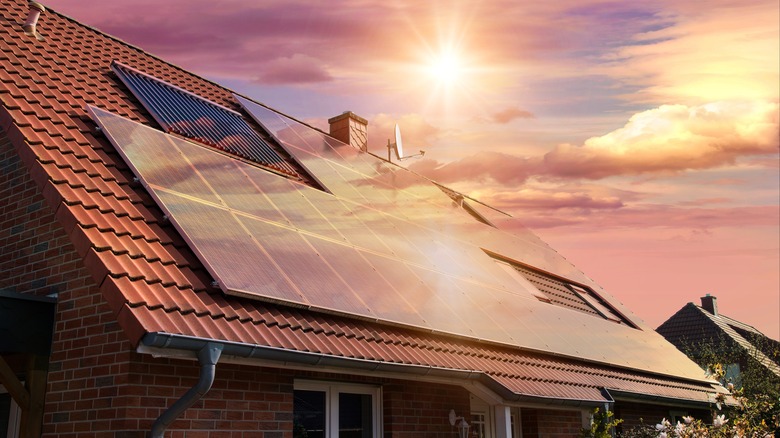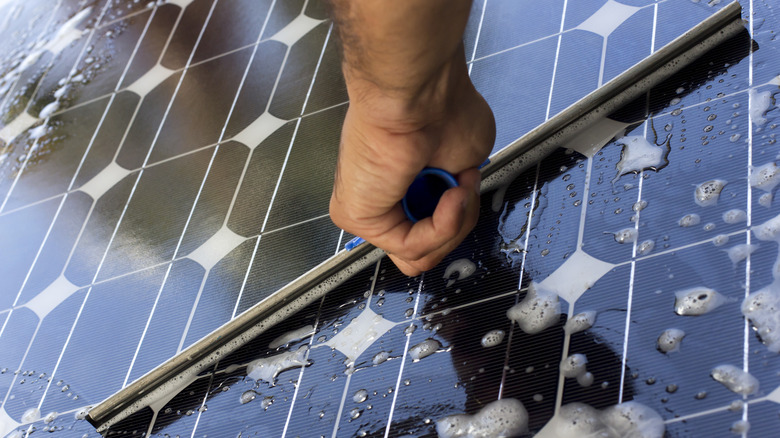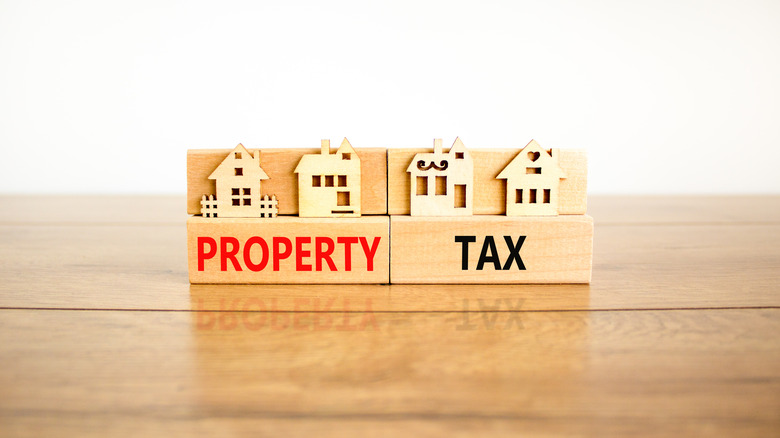Can Solar Panels Increase Your Home's Value?
Solar panels have become a popular addition to homes, and it's no surprise why. They can help you save on utility bills and make your home future-proof.
While there's no denying how useful they can be, installing brand-new solar panels on your house can set you back thousands of dollars, even after all the incentives and tax credits. Furthermore, the area and complexity of your roof and the quality of the solar panels you choose can increase the overall cost significantly. Apart from the upfront cost, solar panels also come with a number of hidden costs.
Despite all this, many homeowners choose to install solar panels, anticipating that their homes' value will increase as a result. This isn't something you would directly benefit from in the short term, but it's worth considering if you plan to sell your home in the future. But if you're on the fence about installing a solar system, it's important to understand when it makes sense to invest in solar panels and what you can do to maximize your return on your investment.
What impact do solar panels have on a home's value?
Solar panels are a great source of renewable energy and can lower your electricity bills from the get-go, but one of the key reasons people get solar panels installed is to increase their home's value and turn a bigger profit when the time comes to sell. In fact, Zillow reports that homes with solar-energy systems installed sold for 4.1% more than homes of comparable value without solar power systems. For a home with a market value of, say, $300,000, this would mean a profit of $12,300 — this is in addition to the years of energy savings the homeowner would have enjoyed.
Similarly, a study by the U.S. Department of Energy's Lawrence Berkeley National Laboratory indicated that homes with solar panels fetch about $15,000 more than homes without them — savings this significant can make a big difference to a person selling their home. The reason why solar panels boost a home's value is that they offer tangible, long-term savings for the home buyer. In a time where we've seen rising prices across the board, the potential of reducing or even eliminating electricity-related expenses is an attractive proposition for many home buyers.
Additionally, the fact is that many homebuyers are focusing on sustainability and are looking to purchase homes with solar-power installations that can reduce their carbon footprint. This is why things like solar panels for RVs have become popular as well.
Where you live matters
While solar panels are undoubtedly seen as a valuable addition to any home, the fact is that whether or not such an installation can increase your home's value will depend on things like where you live and the electricity rates in your area, among other factors. If you live in a region that receives plenty of sunlight throughout the year and has otherwise high electricity rates, a solar panel installation can substantially increase the value of your home.
For instance, states like Hawaii and California have some of the country's highest average monthly electricity bills. In these states, given that sunlight is abundant and electricity costs are above the national average, you could consider solar panel installations to increase your home's value. On the other hand, if you reside in an area where sunlight is scarce, and electricity rates are close to or cheaper than the national average, solar panel installations may have less of an impact on the overall quality of your home.
Besides this, the local solar market can also affect how your home is valued. Certain states offer tax incentives to encourage current homeowners to install solar power panels. In states that have solar-friendly policies, a home with solar panels will sell for more compared to a home in a state with little to no incentives or push towards solar energy. Currently, the best US states for solar energy, in terms of the solar markets there, are California, Florida, Texas, and North Carolina, among others. In comparison, states like North Dakota, South Dakota, and Virginia have less-than-ideal solar markets. In such locations, a home with solar panels may not sell for much more than a comparable home that comes without a solar power system.
Keep the solar panels in top shape
Apart from the place you reside, the solar system's condition and whether you own or lease the solar power system will affect your home's value. Having an updated solar setup that is well-maintained can go a long way in improving your home's resale value. Conversely, if you have a system that is decades old and in poor condition, you're unlikely to find buyers who want to purchase or pay extra for your home due to the installation.
Given this, if you are considering selling a solar-powered home, make sure you keep up with the servicing and familiarize yourself with ways to keep your solar panels clean to attract buyers. Additionally, owning your home's solar system outright, as opposed to leasing the system from a solar company, can positively affect your home's value. Keep in mind that you'll only be able to take advantage of solar incentives if you own the system. What's more, ownership also makes it easier for you to transfer the solar power system to the new buyer.
If you currently own your home but lease your solar system, the solar provider will remain the legal owner of the system. In this case, you'll need to do a buyout, but this may require a large upfront payment. You may also be able to transfer the lease to the new home buyer, but they will typically need to go through a lease eligibility check, which may include a credit check. To simplify the process, you're best off purchasing the system.
Do solar panels impact your property tax?
In many cases, solar system installations increase the property value, which means the property tax is also likely to increase. That said, as many as 36 states, including New Jersey and Nevada, offer some level of property tax exemption, which provides additional value to homeowners and home buyers who might be considering purchasing a home with solar power installations.
A number of states also offer incentives, credits, and rebates to offset the upfront cost of installing a solar system. An example of this is the Federal Solar Tax Credit, which offers a tax reduction of 30% of the installation costs to homeowners. Given this, it's a good idea to check what type of programs your state offers, so you're able to take advantage of the possible incentives and bring down the cost of owning and operating a solar power system.
Ultimately, if you're a homeowner considering installing a solar power system, do your research to find out whether having one installed could be beneficial in your area of residence. Similarly, if you're a home buyer who is considering purchasing a home with a built-in solar power system in the hopes that it will be a cost-effective and eco-friendly choice, make sure to verify the ownership status of the system and consider the maintenance performed so far to determine if you're actually going to benefit.
